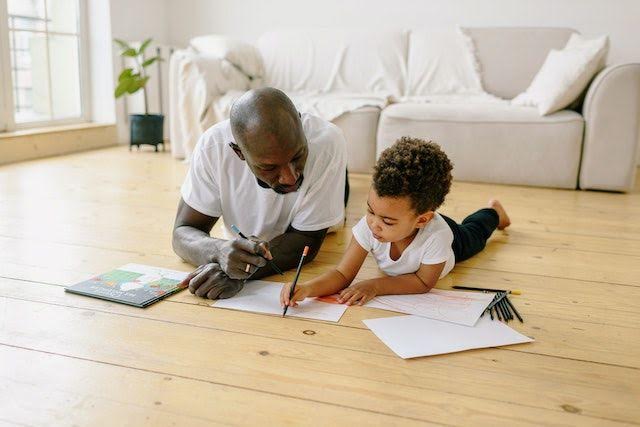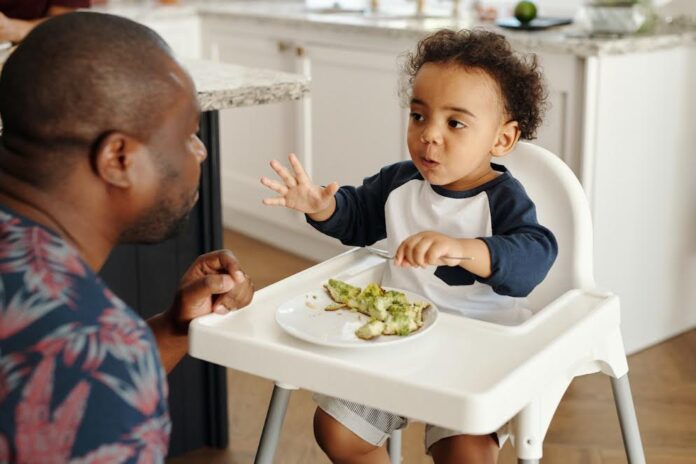Beyond their strength in carrying sofas up flights of stairs or expertly assembling furniture, dads bring a unique set of skills, experience, and emotional support that can turn a potentially stressful event into a memorable family adventure. Join us as we explore the ways dads shape strong parent-child connections, shedding light on their invaluable contributions and highlighting how their presence can turn a daunting endeavor into a bonding experience that strengthens family ties.
The importance of strong parent-child connections
Strong parent-child connections are the bedrock of a child’s universe. These bonds, woven with love and trust, are more than just heartwarming; they’re essential for a child’s growth. With strong connections, kids have a safety net – they can giggle, sob, and vent without judgment. Secondly, academics and social lives thrive in the fertile soil of strong relationships. When parents are engaged, kids feel like they have a cheer squad, cheering them on through every test and friendship tiff.
A pat on the back for acing math or a hug after a tough day at school – these are the building blocks of a child’s confidence and resilience. Strong parent-child connections influence every aspect of development. From cognitive growth to emotional stability, these connections shape the very essence of who a child becomes. It’s not just about the ‘now’; it’s about nurturing the seeds that will grow into a remarkable future.
Dads play a crucial role in stressful situations, such as moving.

Fathers as emotional support
Fathers play a pivotal role in providing this essential support during turbulent times. They are the steady hands that offer comfort and reassurance when the world feels topsy-turvy. In the embrace of a caring father, a child finds solace, a safe haven in which to weather life’s storms. It’s Dad’s encouraging words and that familiar pat on the back that help transform anxiety into excitement. Or think of those late-night talks, the quiet moments when a father listens without judgment, turning a jumble of thoughts into clarity.
These are the snapshots of emotional stability that fathers provide, fostering trust and understanding in the family’s narrative. Research findings reveal that children who have emotionally supportive fathers are more resilient, less prone to anxiety, and exhibit better emotional regulation. Fathers who engage in open and empathetic communication with their children not only foster a sense of security but also nurture their emotional intelligence.
Encouraging open communication
When dads master the art of communication, they unlock doors to their children’s inner worlds, encouraging them to voice their feelings and thoughts, even the ones they’re not quite sure how to express. fathers can employ some tried-and-true strategies. One, they can create a judgment-free zone, where kids feel safe sharing their ideas and emotions.
Dads can also ask open-ended questions that invite conversation rather than one-word answers. Listening actively is another secret ingredient; it’s not just hearing but truly comprehending what their children are saying. Moreover, fathers can lead by example, demonstrating the power of effective communication in their interactions with others.

Shared activities and bonding
Whether it’s shooting hoops in the driveway, crafting art masterpieces, or simply spending quality time together, these shared moments lay the foundation for unbreakable bonds. The impact of these shared activities is nothing short of remarkable. They’re the catalyst for laughter, teamwork, and a sense of belonging. When fathers engage in activities with their children, they create a safe space for mutual learning and growth.
The basketball court becomes a classroom for resilience, and the art studio a canvas for self-expression. These shared experiences not only deepen the connection but also foster trust and understanding. Try new hobbies and sports that can be enjoyed as a family. Planning surprise outings or weekend adventures adds an element of excitement. Sometimes, it’s as simple as cooking a meal together, sharing stories around the dinner table, or having a movie night with homemade popcorn. The key is to be present and enthusiastic, letting the child take the lead in choosing activities that spark their interest.
With a supportive dad, moving can be easy for any child.
Modeling behavior and values
They are the walking, talking moral compasses, navigating the seas of life, and guiding their children toward the shores of integrity, empathy, and resilience. Think about the father who exemplifies kindness by helping a neighbor in need or who demonstrates perseverance by pursuing a lifelong dream. These are the living lessons that fathers offer. It’s a father who, by treating their child’s other parent with respect and love, teaches the value of healthy relationships.
By showing humility in admitting mistakes, dads shape strong parent-child connections and reveal that imperfection is part of the human journey. Fathers who prioritize self-care illustrate the importance of balance and mental well-being. The influence of fathers as role models reverberates through the ages. A father who emphasizes the significance of honesty and empathy shapes a child who grows into an adult who values truth and compassion. These lessons become embedded in the very fabric of a child’s character, echoing through their actions, choices, and relationships for a lifetime.
Creating a safe and nurturing environment
A supportive home environment is the stage where life’s most significant acts unfold. Fathers are the architects of an atmosphere where love, understanding, and emotional security flourish. Practical tips for fathers in this regard include active listening, where they lend an empathetic ear to their children’s joys and worries. Setting clear boundaries and expectations provides structure and stability, while consistency in discipline fosters a sense of fairness and security.
Fathers can also encourage open communication by fostering a culture where feelings and thoughts are openly shared and respected. They are free to explore, to stumble, and to grow, knowing that their fathers provide a safety net. The warm embrace of a nurturing home environment bolsters their self-esteem and confidence. It becomes the solid foundation upon which they build their dreams and face the world with resilience and hope.

Challenges faced by fathers in new homes
Fathers often grapple with the pressure of providing for their families while simultaneously being emotionally present during times of change. Adding to this complexity are their adjustment challenges. Fathers, like anyone else, need time to adapt to new surroundings, routines, and relationships. Moving with children can be difficult, so find tools that will streamline the process. To make more room in your home, NYC Mini Storage is the solution. Furthermore, create a schedule to organize the unpacking process.
So, how can fathers navigate these hurdles with grace and resilience? First, they must embrace the idea that it’s okay to ask for help. Support from partners, friends, or professionals can provide invaluable guidance during challenging times. Fathers need to prioritize their physical and mental well-being to be effective supports for their families. Creating routines and rituals can provide a sense of stability and predictability in a new environment. Finally, open communication with their children, partners, or support networks can help fathers express their own needs and challenges.
Dads shape strong parent-child connections as they can turn stressful moments into joyful ones.
Final thoughts on ways dads shape strong parent-child connections
While fathers may not always receive the recognition they deserve, their contributions are indispensable. Moreover, their emotional support and unwavering presence offer a sense of security and reassurance to the entire family during what can be a tumultuous time. Dads often have the innate ability to turn stressful moments into cherished memories with their lightheartedness and problem-solving skills. As we’ve seen, a successful move is also about the people who make it happen. Dads shape strong parent-child connections and they bring a unique blend of strength, wisdom, and heart to the process, making them invaluable partners in this significant life event.





